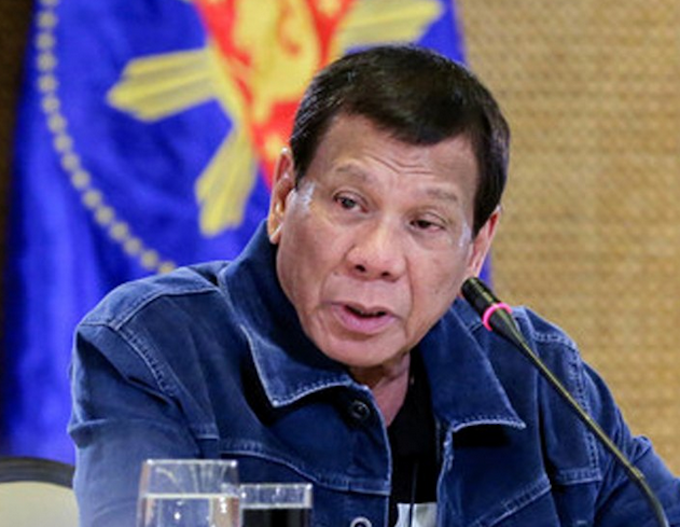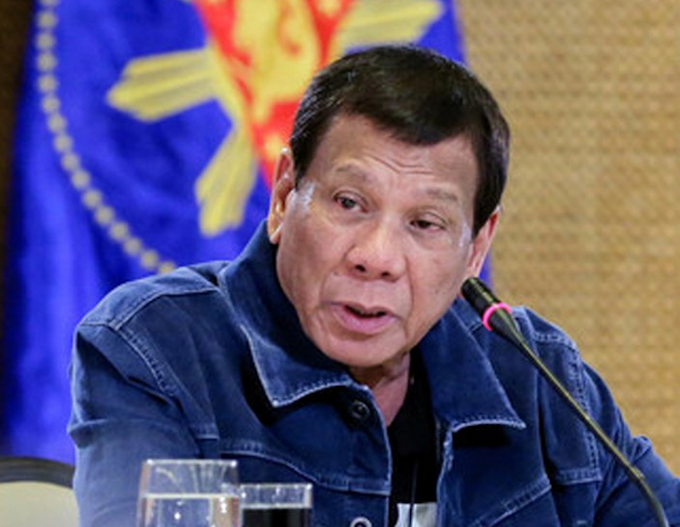
By Felipe F Salvosa II in Manila
The Philippines Senate and the House of Representatives have passed identical bills granting extra powers to the president to deal with the Covid-19 coronavirus pandemic, such as the takeover of medical and transport facilities and flexibility in disbursing the national budget.
Normally both chambers pass their own versions and then hold a bicameral conference to reconcile conflicting provisions, but during Monday’s special session, the House agreed to adopt the 10-page Senate Bill 1418 instead of its own House Bill 6616, to speed up the legislative mill.
Executive Secretary Salvador Medialdea told House members the Malacañang Palace took note of concerns over wide-ranging emergency powers and said the Executive Branch would settle for “standby powers”.
READ MORE: House, Senate dissenters: ‘Emergency actions, not powers’ needed vs coronavirus
Dissenting lawmakers yesterday condemned the bill, saying what was needed was “emergency action” not “emergency powers”.
The approved bill narrowed the establishments that may be subject to a takeover, to only those needed to house health workers, serve as quarantine areas, quarantine centers, medical relief and aid distribution locations, or other temporary medical facilities; and to transport health, emergency, and frontline personnel and other persons.
– Partner –
The draft earlier sent by Medialdea to Congress sought a two-month state of national emergency requiring the temporary takeover of “any privately owned public utility or business affected with public interest”.
The bill, now titled “Bayanihan to Heal as One Act”, declares a state of national emergency to last for three months, and grants President Rodrigo Duterte “powers that are necessary and proper” to carry out a list of 24 emergency measures and “other measures as may be reasonable and necessary”.
Emergency measures
The emergency measures include:
- faster accreditation of testing kits;
- ensure that all local government units are acting in line with the rules, regulations and directives issued by the national government;
- direct the operation of any privately owned hospital and medical and health facility and other establishments to house health workers, serve as quarantine areas, quarantine centers, medical relief and aid distribution locations, or other temporary medical facilities; and public transportation to ferry health, emergency, and frontline personnel and other persons;
- enforce measures to protect the people from hoarding, profiteering, injurious speculations, manipulation of prices and others;
- use savings generated from discontinued programmes to augment funds needed to address the Covid-19 emergency;
- allocate cash, funds, investments, including unutilized or unreleased subsidies and transfers, held by any government corporation or national government agency;
- move deadlines and timelines for the filing and submission of any document, as well as the payment of taxes, fees, and other charges;
- direct all banks, quasi-banks, financing companies, lending companies, and other financial institutions, public and private, including the Government Service Insurance System, Social Security System and Pag-IBIG Fund, to implement a minimum of a 30-day grace period for the payment of all loans;
- provide for a 30-day grace period on residential rents falling due within the period from March 16 to April 15, 2020; and
- implement an “expanded and enhanced” cash transfer programme.
The president was required to submit a report every Monday to Congress on the implementation of the act.
Violators will be subject to imprisonment of two months or a fine of not less than P10,000 (NZ$340) but not more than P1 million (NZ$34,000), or both.
Three month emergency
The bill clarified that no provision “shall be construed as an impairment, restriction or modification of the provisions of the Constitution.”
The state of emergency ends in three months unless extended by Congress unless withdrawn by a concurrent resolution of Congress or ended by presidential proclamation.
Voting at the House was 284-9, with no abstentions. Most of those who voted against the bill belonged to party-list groups Gabriela, Bayan Muna, ACT Teachers and Kabataan. Albay Representative Edcel Lagman also voted against the bill.
At the Senate, it was 19-1, with no abstentions, Senate President Vicente Sotto III said. Twelve members were present on the floor and the rest voted remotely.
Palace spokesman Salvador Panelo said “Congress has responded to the call of the times”.
Opposition senator Risa Hontiveros said she voted “no” because the bill granted the president “unchecked powers that are open to abuse and corruption. It also gives him a virtual blank check with no clear plan or strategy to defeat Covid-19″.
“In the measure, the president has near-absolute control over public funds in national government agencies and government-owned and controlled corporations. His new powers would authorise him to altogether stop important government projects and divert their funding to other uses, with little checks and balances in place,” she added.
Article by AsiaPacificReport.nz








